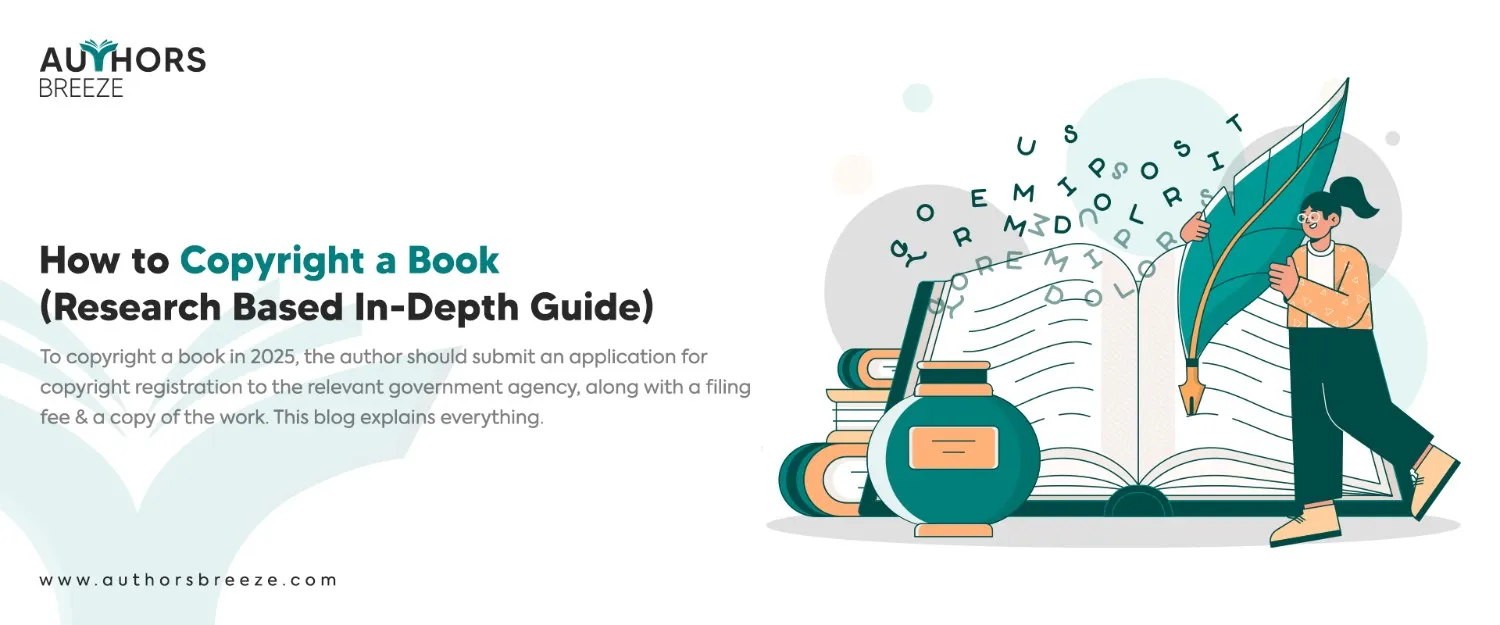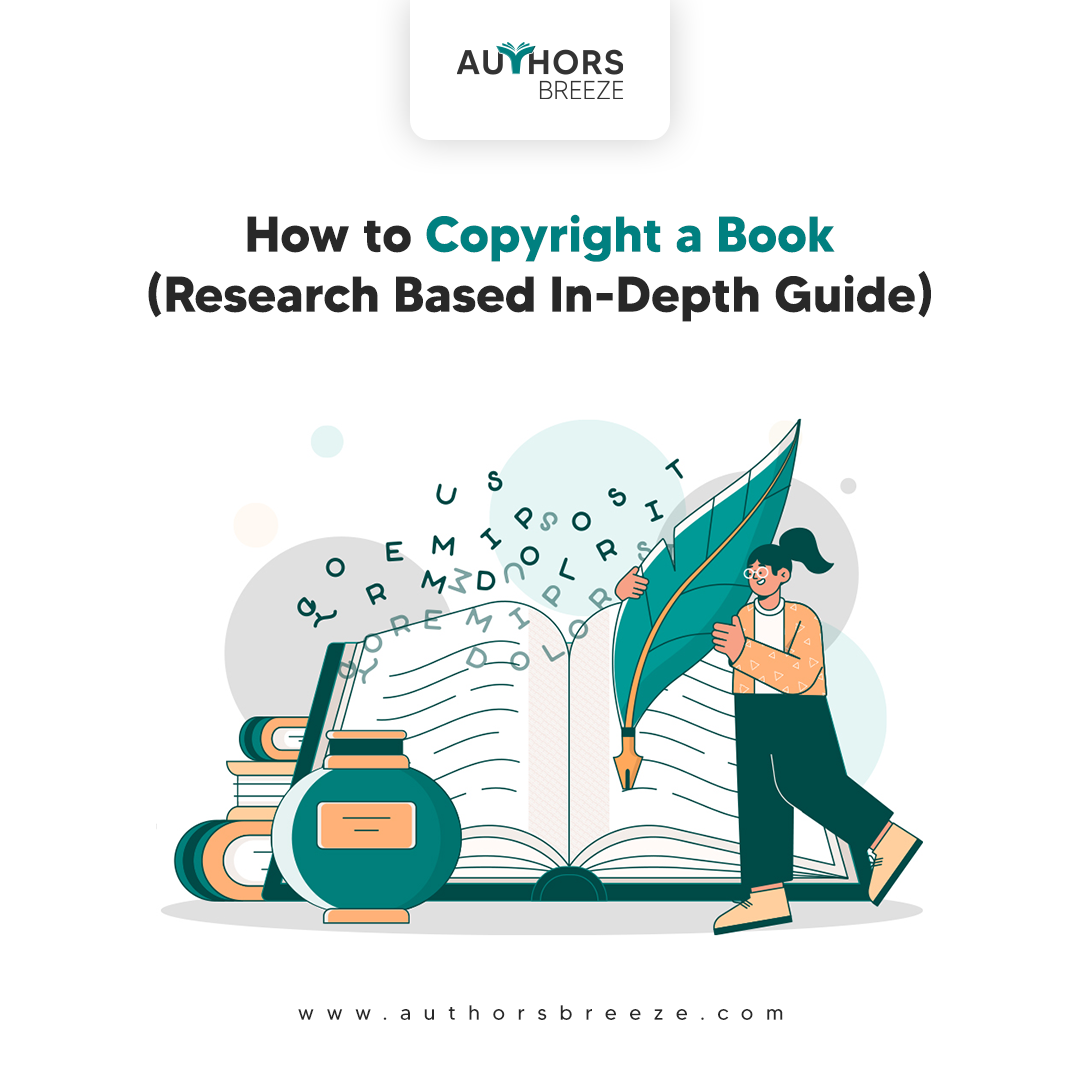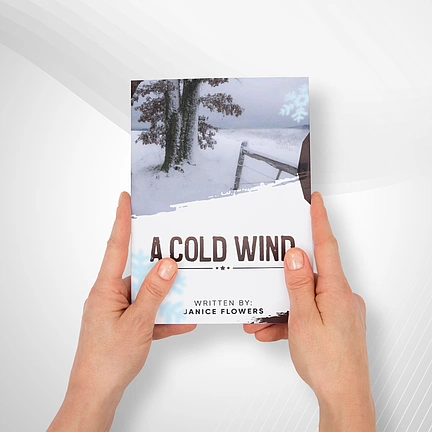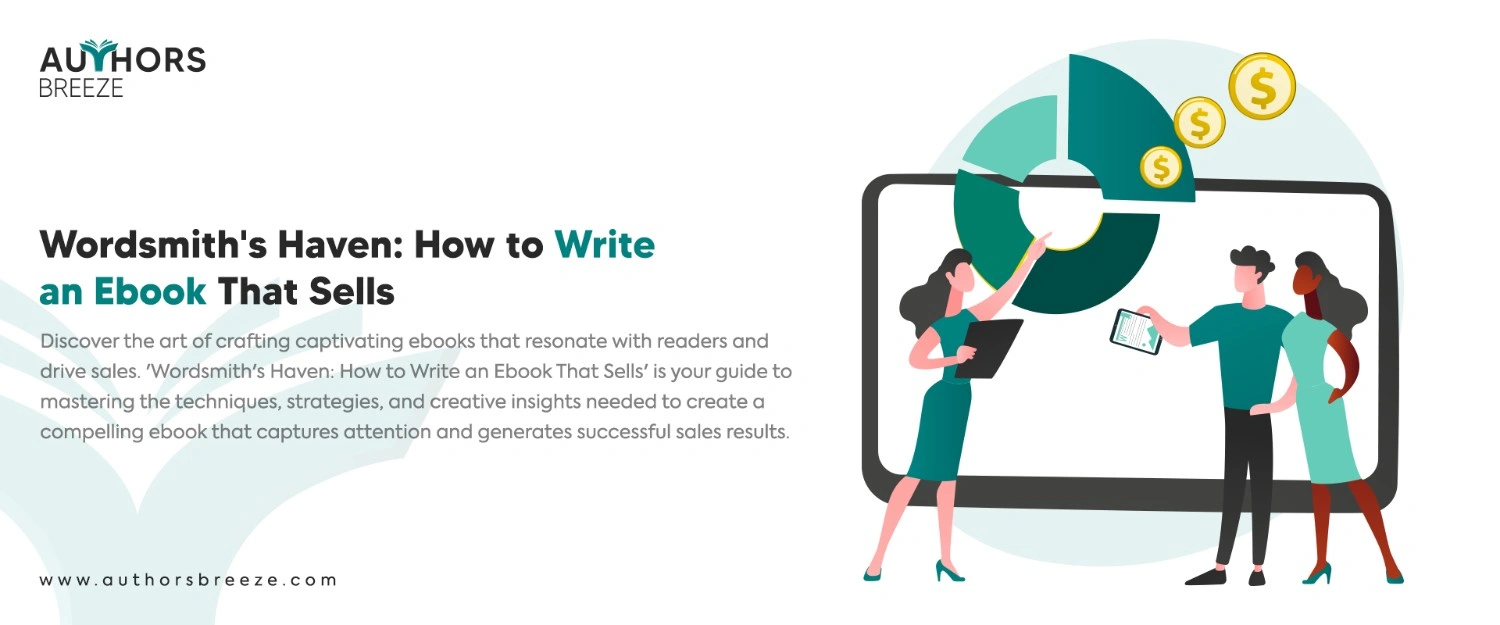You poured your very essence into the pages of your book, infusing every word with the beating rhythm of your heart and the soaring passion of your soul. It’s your creative masterpiece. Thinking of that, you want to protect it from plagiarism and theft. It is where copyright comes in handy. Copyright is a protection that prevents others from using or copying the original work without permission.
Don’t Let Your Book Idea Slip Away: Here’s How to Copyright Your Work in 2025 and Protect It from Plagiarism!
Are you an aspiring author with a brilliant book idea keeping you up at night? Do you fear that your hard work and creativity might be stolen by someone else? Well, as we step into 2025, it’s crucial to protect your work from plagiarism and copyright infringement. Learn how to copyright a book in 2025, so you can focus on your writing.
What is Copyright?
Copyright is a legal protection granted to the creator of an original work. It gives the author the exclusive right to reproduce, distribute, and display their work. In the case of books, copyright protects the author’s rights to the book’s content, including the plot, characters, and writing style.
Benefits of Copyrighting a Book
There are several benefits to copyrighting your book, including the following:
Legal Protection
Copyright provides legal protection for your book, preventing others from using or reproducing it without your permission. If someone does infringe on your copyright, you can pursue legal action to protect your rights.
Exclusive Rights
When you copyright your book, you gain exclusive rights to use, distribute, and display your work. It means no one else can profit from your book without your permission.
Increased Value
Copyrighting your book can increase its value, demonstrating that your work is original and valuable. It can be vital if you plan to sell your book or license its use.
Marketing Advantage
You can include the copyright symbol and year in your book advertising materials by copyrighting your book. It can help to establish your book as a legitimate work and boost its credibility.
International Protection
Copyright protection is recognized in many countries worldwide, providing international protection for your book. It can be helpful if you sell or distribute your book internationally.
Copyright Eligibility
Before copyrighting a book, ensuring the work is eligible for copyright protection is crucial. In the United States, copyright protection is obtainable for original works of authorship. The ones fixed in a tangible medium of expression. To be eligible for copyright protection, your book must meet the following criteria:
Original Work
Your book must be original to be eligible for copyright protection. It means the author must have created the work independently, without copying from other books or sources.
Creative Content
In addition to being original, a book must involve a certain degree of creativity. The book must reflect the author’s authentic expression or interpretation of ideas rather than simply presenting facts or information.
Tangible Form
Finally, a book must be a tangible medium of expression. Then, it will be eligible for copyright protection. It means that the work must be in a form that can be perceived or reproduced, either directly or with the help of a machine or device. It would typically mean the work has been written down or saved digitally for a book.
Copyright Registration Process
While an author becomes eligible for copyright protection when they create an original work fixed in a tangible medium of expression, registering the copyright provides additional legal protection and benefits. Registering your copyright is a simple process that you can do online. Here’s how you can do it:
1- Determine the Type of Work
The first step in registering a copyright for a book is to determine the type of work it is. It will help determine which copyright registration application to use. For a book, the appropriate form is typically the “Literary Work” application.
2- Complete a Copyright Application
You can complete a copyright application online at the U.S. Copyright Office website. It involves providing information about yourself and your book, including the title, author, and publication date.
3- Pay the Copyright Registration Fee
There is a fee associated with registering a copyright. It varies depending on the type of work and the registration method. In most cases, you can pay this fee online at the U.S. copyright office website or by mail. The copyright registration fee is currently $45.
4- Submit Your Application and Deposit Copy
Once you’ve completed your application and paid the fee, you must submit a deposit copy of your book. You can do it online by uploading a digital copy of your book. If your book is not available in digital format, you can submit a physical copy by mail.
5- Wait for the Registration to be Proceed
After submitting the application and the registration fee, the author must wait for the registration to be processed. It typically takes several months, although expedited processing is available for an additional cost.
Once the copyright registration is processed, the author will receive a registration certificate from the U.S. Copyright Office. This certificate provides evidence of the copyright claim and can be used to enforce the author’s legal rights. However, if you need any assistance related to copyright, you can contact Authors Breeze. They provide the best services for authors.
Copyright Infringement
Copyright infringement happens when someone uses a copyrighted work without permission from the copyright owner. It can include copying or distributing the work, creating derivative works based on the original, or performing or displaying the work publicly without permission.
How to Protect Your Copyright?
To protect your copyright, you should take the following steps:
- Register your copyright
- Monitor your work for infringement
- Enforce your copyright if the violation occurs
- Take legal action if necessary
How Can You Take Legal Action?
Copyright infringement is a serious affair with significant legal and financial consequences. You can take legal action to protect your rights if someone infringes on your copyright.
Here are the steps involved in pursuing a copyright infringement claim:
1- Gather Evidence
The first step in pursuing a copyright infringement claim is to gather evidence of the infringement. It might include copies of the infringing work, records of communications with the infringing party, or other documentation demonstrating the breach.
2- Contact the Infringing Party
Once evidence of the infringement has been gathered, the author should contact the infringing party to demand they stop using the copyrighted work. It may involve sending a cease and desist letter or taking other legal action.
3- Consider Alternative Dispute Resolution
In some cases, resolving a copyright infringement dispute may be possible through alternative dispute resolution methods, such as mediation or arbitration. These methods can be less expensive and faster than going to court.
4- File a Lawsuit
Suppose the infringing party does not comply with the author’s demands. In that case, the author may need to file a lawsuit to enforce their copyright. It typically involves hiring an attorney and filing a complaint with the court.
Copyright Renewal and Duration
Copyright protection lasts for a specific duration, after which you should renew it. Here’s what you need to know:
Duration of Copyright Protection
Copyright protection remains for the life of the author, plus 70 years for works created after January 1, 1978.
Copyright Renewal Process
There is no need to renew your copyright for works created after January 1, 1978. Copyright protection lasts for the duration mentioned above.
Common Copyright Mistakes to Avoid
While copyrighting a book may seem straightforward, authors can make several common mistakes that can put their copyright at risk. Here are some of the most common copyright mistakes to avoid:
Not Register Your Copyright
One of the most common mistakes authors make is failing to register their copyright with the U.S. Copyright Office. While copyright protection does exist automatically when a work is created, registering your copyright provides additional legal protections. It can make it easier to enforce your copyright if it is infringed.
Fail to Include Copyright Notice
Another common mistake is failing to include a copyright notice on your book. While having a copyright notice is no longer required for works published after March 1, 1989, it is still a good practice to include one to provide notice to potential infringers the work is protected by copyright.
Assume Fair Use Applies
Fair use is a legal policy that allows the use of copyrighted material without permission from the copyright owner in certain circumstances, such as for commentary, criticism, or educational purposes. However, fair use is a complex and often misunderstood concept. Moreover, assuming that it applies to your use of copyrighted material can put you at risk of copyright infringement.
Use Material Without Permission
Using copyrighted material without permission from the copyright owner is copyright infringement, even if it is done unintentionally. It can include using images, quotes, or other material from another author’s work without permission.
Fail to Credit the Original Author
If you do use material from another author’s work with permission, it is essential to credit the original author. Failing to do so can lead to allegations of plagiarism or copyright infringement.
FAQs
Do I need to copyright my book before I submit it to a publisher?
No, you do not need to register your copyright before submitting your book to book publishers. However, it is a good practice to do so before publication to ensure that your intellectual property is protected.
Can I use copyrighted material in my book if I give the original author credit?
Using copyrighted material without permission from the copyright owner is copyright infringement, even if you credit the original author. It is essential to obtain authorization or determine if it falls under fair use before including copyrighted material in your book.
Do I need a lawyer to copyright my book?
No, you can complete the copyright registration process yourself. However, if you're uncomfortable with the process, you may want to consult a lawyer.
Can I copyright a book I co-authored with someone else?
Yes, you can copyright a book that you co-authored with someone else. Both authors can apply for joint copyright ownership.
At Authors Breeze, we understand the importance of protecting your intellectual property. That's why we offer various services to help authors, from the best proofreading services to author website design services.
Conclusion
Copyrighting your book is essential to protect your intellectual property rights and ensure you receive the credit and compensation you deserve for your hard work. In this research-based, in-depth guide, we have provided you with all the necessary information to copyright your book in 2025. We hope this guide will help you understand the copyrighting process and the steps you need to take to safeguard your work.
Remember, copyrighting your book is an investment in your future as an author. It is never too early to start protecting your creative endeavors. With the knowledge and resources provided in this guide, you can confidently navigate the copyright process and secure your place in the literary world. However, if you still need any kind of help, you can get in touch with us. We are the pioneers when it comes to helping authors in achieving success in their book-writing and publishing journey. Contact us whether you want professional book cover design, an audiobook of your literary work, or video book trailers to promote your book.







